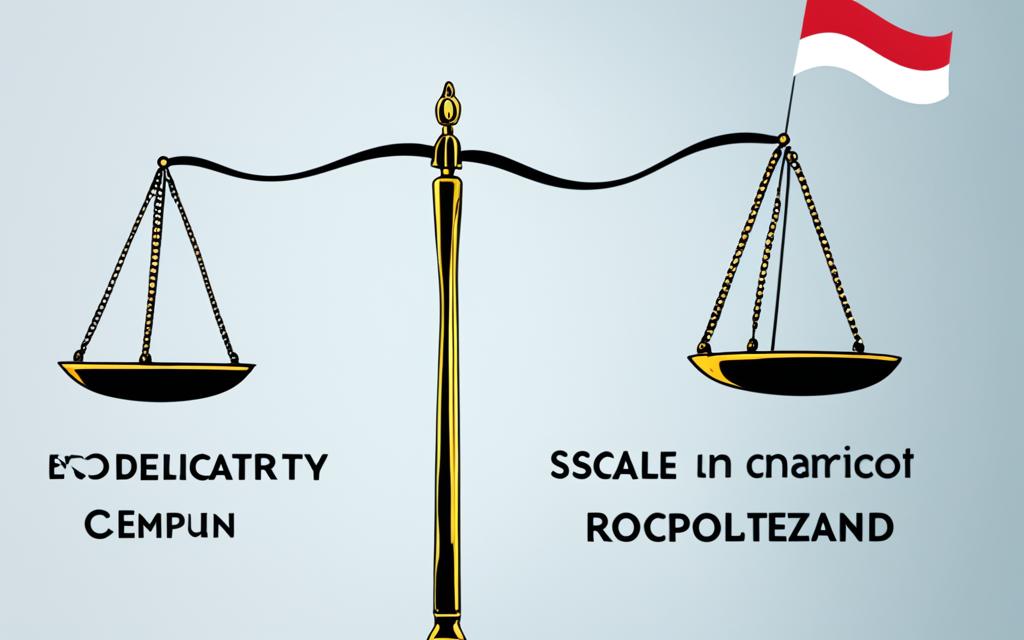Setting up and running a business in Poland involves navigating a range of legal and regulatory requirements. Understanding and complying with these requirements is essential for the smooth operation and success of your business in the country. In this article, we will explore the key aspects that businesses in Poland should be aware of when it comes to meeting Polish requirements, setting up a business in Poland, and running a business in Poland.
Whether you are planning to establish a new company or expand your existing business into Poland, it is crucial to have a clear understanding of the legal and regulatory landscape. This knowledge will help you make informed decisions, ensure compliance, and mitigate any potential risks or challenges that may arise. From company registration and legal structures to taxation and accounting obligations, employment and labor laws, intellectual property rights, commercial regulations, consumer protection, data protection and privacy laws, as well as compliance and reporting obligations, each aspect plays a vital role in the operation of your business.
By familiarizing yourself with the Polish requirements and regulations pertinent to your industry, you can confidently navigate the local business environment, establish a strong presence, and build long-term success in Poland. Our comprehensive guide will provide you with the necessary insights and information to ensure compliance and make informed business decisions. Let’s dive into the essential legal and regulatory requirements for companies in Poland.
Company Registration and Legal Structure
Setting up a business in Poland involves understanding the specific requirements for company registration and choosing the appropriate legal structure. This section will guide you through the essential steps and considerations to ensure a smooth and compliant establishment of your business in Poland.
Company Registration Requirements
Before formally establishing a company in Poland, there are certain requirements that must be fulfilled. These include:
- Obtaining a National Court Register (KRS) number: Every business entity in Poland must be registered with the National Court Register, which provides a unique identification number.
- Preparing necessary documentation: This includes a notarized copy of the company’s Articles of Association, proof of the company’s address, and identification documents of the directors and shareholders.
- Appointing a management board: The company must have at least one director or a management board responsible for the day-to-day operations and decision-making.
Complying with these requirements ensures the legal recognition and legitimacy of your business in Poland.
Legal Structure Options
Poland offers various legal structures for businesses, each with its advantages and considerations. The most common legal structures include:
- Sole Proprietorship: A sole proprietorship is suitable for individuals who want to run a business on their own. It offers simplicity, full control over decisions, and simplified accounting requirements.
- Partnerships: Partnerships, such as general partnerships (spółka jawna) and limited partnerships (spółka komandytowa), are formed when two or more individuals or entities collaborate to operate a business together. Partners share profits, losses, and management responsibilities based on the partnership agreement.
- Limited Liability Company (LLC): An LLC is a popular choice for many businesses in Poland. It offers limited liability protection for shareholders and allows for a flexible management structure.
- Joint-Stock Company (JSC): A JSC is suitable for larger businesses planning to raise capital through public offerings. The ownership is represented by shares, and the governance structure is more complex than that of an LLC.
Choosing the right legal structure depends on the nature of your business, liability considerations, taxation implications, and future growth prospects.
Taxation and Accounting Obligations
Understanding the tax system and accounting obligations is crucial for businesses operating in Poland. In this section, we will provide an overview of the tax requirements and accounting obligations in Poland.
Tax Requirements in Poland
Poland has a comprehensive tax system that businesses need to navigate to ensure compliance. The main taxes that companies must consider include:
- Corporate Income Tax: Companies in Poland are subject to corporate income tax on their profits. The current corporate income tax rate in Poland is 19%. It is important for businesses to understand the tax exemptions, deductions, and allowances available to minimize their tax liability.
- Value-Added Tax (VAT): Polish companies are required to register for VAT if their annual turnover exceeds a certain threshold. The standard VAT rate in Poland is 23%, with reduced rates of 8% and 5% applicable to specific goods and services. Businesses must accurately calculate and report their VAT liabilities.
- Social Security Contributions: Employers and employees in Poland are obligated to make contributions towards social security. These contributions fund the country’s social security system, which includes healthcare, pensions, and other social benefits.
Accounting Obligations in Poland
In addition to tax requirements, businesses in Poland have specific accounting obligations to fulfill. These obligations include:
- Bookkeeping: Polish companies must maintain accurate and up-to-date financial records, including books of accounts, vouchers, and supporting documentation. Proper bookkeeping ensures compliance with tax regulations and provides a clear financial picture of the business.
- Annual Financial Statements: At the end of each financial year, companies in Poland are required to prepare and submit annual financial statements. These statements provide a comprehensive overview of the company’s financial position, including income, expenses, assets, and liabilities.
Complying with tax and accounting obligations is essential for businesses operating in Poland. It ensures legal compliance, minimizes the risk of penalties or tax audits, and allows businesses to focus on their core operations.
Employment and Labor Laws
When it comes to hiring and managing employees in Poland, it is crucial for businesses to understand and comply with the country’s employment and labor laws. These laws outline the rights and responsibilities of both employers and employees, ensuring fair and safe workplace practices.
One key aspect to consider is employment contracts. In Poland, it is common for employers to have written contracts with their employees. These contracts specify important details such as the duration of employment, working hours, and the agreed-upon salary. It is essential for both parties to clearly understand the terms and conditions of the employment contract to avoid potential conflicts in the future.
Poland also has regulations regarding working hours. The standard working week in Poland is 40 hours, typically spread across five days. However, it is possible for employers to request employees to work up to 48 hours per week, provided that the average working hours over a specified period do not exceed 40 hours per week.
Moreover, Polish labor laws address the issue of minimum wage. The country has a statutory minimum wage, which is regularly reviewed and adjusted. It is important for businesses to ensure that they comply with the minimum wage requirements to provide fair compensation to their employees.
In addition to employment contracts and working hours, Polish labor laws also cover employee benefits. These benefits include paid leave, such as annual vacation leave and maternity leave. Employers are obligated to provide these benefits to their employees as per the relevant laws and regulations.
Another critical aspect of employment and labor laws in Poland is health and safety in the workplace. Employers must create a safe work environment, assess and manage potential risks, and provide necessary training and protective equipment to their employees.
Overall, understanding and complying with Polish employment and labor laws are essential for businesses operating in the country. By doing so, employers can ensure fair working conditions, maintain compliance with regulations, and foster positive employee relations.
Intellectual Property Rights
Safeguarding intellectual property is crucial for businesses operating in any country. In Poland, there are specific requirements and procedures in place to protect intellectual property rights, including trademarks, patents, and copyrights.
If you have developed a unique brand, logo, or design, registering a trademark provides legal protection and exclusive rights to use that mark in connection with your products or services. This can prevent others from using or imitating your brand, helping to maintain your business’s reputation and identity.
For inventions or innovative solutions, obtaining a patent is essential. It grants exclusive rights to produce, use, or sell the invention for a specified period, giving you a competitive edge in the market. Patents encourage innovation by providing inventors with the opportunity to profit from their creations while preventing others from exploiting them without permission.
In addition to trademarks and patents, copyrights protect original works such as literary, artistic, and musical creations. Registering a copyright ensures that you have the legal right to reproduce, distribute, and display your work, preventing others from using it without permission. This is particularly important for businesses in creative industries, such as publishing, music, and software development.
It is important to note that intellectual property rights are territorial, meaning protection is limited to the jurisdiction in which they are registered. If you operate your business in Poland, it is crucial to understand and comply with the Polish intellectual property requirements to effectively protect your intellectual property.
In the event of intellectual property infringement, there are enforcement mechanisms available in Poland. The legal system provides avenues for seeking remedies, including injunctions, damages, and injunctions, to protect your rights and hold infringing parties accountable.
To learn more about protecting intellectual property in Poland and ensuring compliance with the Polish intellectual property requirements, consult with legal experts specializing in intellectual property law. They can guide you through the registration process and provide advice on the best strategies to safeguard your intellectual assets.
By taking proactive measures to protect your intellectual property rights, you can safeguard your business’s intangible assets and maintain a competitive advantage in the market.
Commercial Regulations and Consumer Protection
When operating a business in Poland, it is crucial to understand the commercial regulations and consumer protection laws in place. These regulations ensure fair trade practices and protect the rights of consumers. In this section, we explore key aspects of Polish commercial regulations and consumer protection, including advertising regulations, product labeling requirements, and consumer rights.
Advertising Regulations
Polish commercial regulations include specific guidelines for advertising practices. Businesses must comply with these regulations to ensure transparency and honesty in their marketing efforts. It is essential to avoid deceptive advertising or any false claims that may mislead consumers. Advertisements should accurately represent products or services, providing clear and honest information to potential customers.
Product Labeling Requirements
Poland has strict regulations regarding product labeling to protect consumers and provide them with necessary information. Businesses must ensure that their product labels comply with these requirements. This includes providing accurate and clear information about the product’s ingredients, usage instructions, safety precautions, and any relevant certifications or warnings. Adhering to these labeling regulations is crucial to maintain transparency and consumer trust.
Consumer Rights
- Consumer Protection Act: Under the Polish Consumer Protection Act, consumers have various rights and protections when purchasing goods or services. This includes the right to receive accurate information, the right to return faulty or unsatisfactory products, and protection against unfair contract terms.
- Product Warranty: Polish law also mandates a minimum warranty period for products. Businesses must provide warranty information to consumers and honor their warranty claims within the specified period.
- Withdrawal from Contracts: Consumers in Poland have the right to withdraw from certain contracts within a specified period, such as distance selling or door-to-door sales agreements. Businesses must provide clear information about this right and facilitate the withdrawal process for consumers.
- Consumer Complaints: Polish consumer protection laws ensure that consumers can file complaints against businesses that fail to meet their obligations. Businesses must handle consumer complaints in a fair and timely manner, providing appropriate resolutions when disputes arise.
By understanding and adhering to these consumer rights, businesses can build trust and maintain positive relationships with their customers.
Remember, compliance with commercial regulations and consumer protection laws not only ensures legal obligations are met but also establishes a strong reputation in the market. Customers are more likely to trust businesses that prioritize transparency, honesty, and consumer satisfaction.
Data Protection and Privacy Laws
In today’s digital era, data protection and privacy have become paramount concerns for businesses. Companies operating in Poland must adhere to the Polish data protection requirements and privacy laws to ensure the security and confidentiality of personal information. In this section, we will explore the key aspects of data protection and privacy laws in Poland, providing businesses with valuable insights and guidance.
Data Protection Laws in Poland
Poland, like other European Union member states, follows the General Data Protection Regulation (GDPR) to regulate the processing and protection of personal data. The GDPR sets out stringent guidelines for businesses and organizations regarding the collection, storage, use, and disclosure of personal information. Compliance with the GDPR ensures that individuals’ rights to privacy and data protection are respected and upheld.
Under the Polish data protection requirements, companies are obligated to obtain informed consent from individuals before collecting their personal data. They must also implement appropriate safeguards to protect this data from unauthorized access, loss, or misuse. In the event of a data breach, businesses must notify both the affected individuals and the relevant supervisory authority, taking proactive measures to mitigate the impact of the breach.
Privacy Laws in Poland
In addition to data protection laws, Poland has specific privacy laws to safeguard individuals’ privacy rights. These laws regulate activities such as direct marketing, electronic communications, and surveillance. They aim to strike a balance between allowing businesses to operate efficiently and respecting individuals’ rights to privacy.
When engaging in direct marketing activities, companies must comply with the Polish privacy laws, ensuring that individuals’ consent is obtained and that they have the option to opt-out of such communications. These laws also place restrictions on unsolicited electronic communications, such as emails and text messages, to protect individuals from spam and unwanted messages.
Furthermore, privacy laws in Poland impose restrictions on the use of CCTV cameras and other surveillance devices in public and private spaces. Businesses must adhere to these regulations, ensuring that individuals’ privacy is respected while maintaining the required level of security.
Safeguarding Personal Data in Poland
To comply with the Polish data protection requirements and privacy laws, businesses need to adopt comprehensive data protection measures. This includes implementing robust data security systems, providing regular staff training on data protection practices, and conducting privacy impact assessments to identify and address potential risks.
By prioritizing data protection and privacy, companies can enhance customer trust, strengthen their reputation, and mitigate the risks associated with data breaches or non-compliance. Adhering to the Polish data protection requirements and privacy laws not only ensures legal compliance but also demonstrates a commitment to respecting individuals’ privacy rights.
In the next section, we will explore the compliance and reporting obligations that businesses must fulfill in Poland to ensure adherence to relevant legal and regulatory requirements.
Compliance and Reporting Obligations
Ensuring compliance with Polish regulations and fulfilling reporting obligations is vital for businesses operating in Poland. Companies need to carefully navigate the complex landscape of Polish compliance requirements to avoid penalties and maintain their reputation.
One of the key obligations is the submission of annual reports, where companies provide a comprehensive overview of their financial performance and activities. These reports play a crucial role in demonstrating transparency and accountability to stakeholders, including shareholders, creditors, and regulatory authorities.
In addition to annual reports, maintaining proper corporate governance practices is essential. This involves establishing robust internal controls, following ethical business practices, and fostering transparency in decision-making processes. Adhering to corporate governance principles not only ensures compliance but also enhances the trust and confidence of investors and business partners.
Furthermore, companies must stay up to date with industry-specific regulations that govern their operations. This includes complying with specific licensing requirements, adhering to sector-specific standards, and fulfilling any reporting obligations imposed by regulatory bodies overseeing the respective industries.














